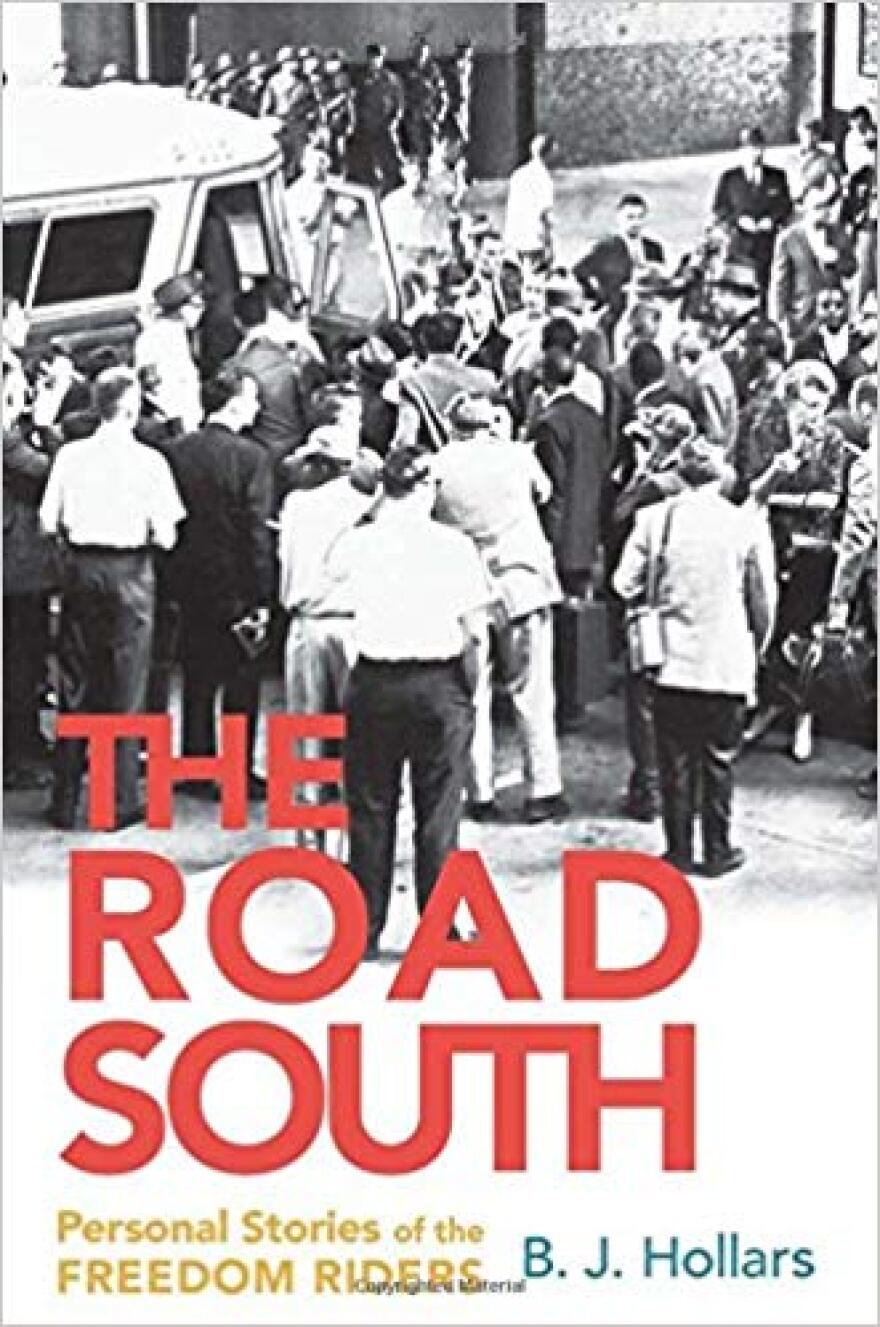“The Road South: Personal Stories of the Freedom Riders”
Author: B. J. Hollars
Publisher: The University of Alabama Press
Pages: 171
Price: $24.95 (Hardcover)
B.J. Hollars is an Indiana boy who took the MFA here at the University and since has pursued his teaching career in Wisconsin at Eau Claire.
But Alabama history and culture, as is often the case with northerners, struck him as exotic, seized his imagination and has given him a lifetime of material.
Hollars has written “Thirteen Loops,” about the 1981 lynching of Michael Donald in Mobile and “Opening the Doors,” on Wallace’s stand at Foster Auditorium and the generally under-covered civil rights struggle in Tuscaloosa in the 50s and 60s.
Now, inspired by the stories of the violence in Anniston, Birmingham and Montgomery, he has produced “The Road South,” a smooth, readable account.
Hollars freely acknowledges that the HISTORY of the Freedom Rides of 1961 has been covered by authoritative reporters such as David Halberstam in “The Children” or Gene Roberts and Hank Klibanoff in “The Race Beat,” and by Frye Galliard and Howell Raines and James Peck.
Hollars has assimilated these and many diaries, journals and studies.
His goal, however was a little different. He went after the participants’ individual stories. Interviewing the Riders, black and white, at length, he sought to know their motives and emotions at the time, and how they now feel about the sacrifices made in 1961.
The results are sometimes surprising and sometimes touching. For example, Miriam Feingold, of Brooklyn, was the daughter of teachers and union activists. Hollars does not use the term, but Feingold was a “red diaper baby,” raised on rallies and protests.
She worked for CORE, went South and was attacked in Montgomery after the police protection promised by Governor Patterson at the station disappeared. Later, in Mississippi, she was arrested and sent to Hinds County Jail and then Parchman Prison Farm in Mississippi for 40 days. To humiliate and terrorize female prisoners, they were subjected to vaginal searches. “Rather than being required to change [rubber] gloves between prisoners, the female guards simply dipped their gloved hands into buckets of Lysol between women….”
But Miriam Feingold’s parents were as supportive and proud of her as any parent can be.
James Zwerg of Appleton, Wisconsin, was one of the stars of the Riders. Deeply religious, Zwerg could do no other than to protest for civil rights.
As he was being beaten into unconsciousness in Montgomery, Zwerg remembers, “That’s when I had this incredible religious experience of being surrounded by love and peace. I had this assurance that no matter what happened I was going to be okay.”
His parents didn’t see it that way. They felt he had been, essentially, brainwashed by subversives. He was not alone.
Zwerg recalls, “A lot of the kids were disowned by their parents, were not welcomed back home…. I was not the only one who went through that.”
The story of Hezekiah Watkins is not exactly humorous, but it is odd.
Watkins was 13 years old in 1961 when he and his buddy went down to the Jackson, Mississippi bus station out of curiosity, to see what was going on. In the confusion, he found himself inside the station. He was immediately arrested. “It didn’t matter that Hezekiah lived just a few blocks away, for the officers present that night, he fit the Freedom Rider description perfectly; he was young, he was black, and he was there.”
Watkins had been born in Milwaukee, Wisconsin, and had lived there less than two years before he and his mother moved South. But when the policeman heard Wisconsin, that was it. Watkins was quickly processed in the Jackson City Jail, and that night sent to Parchman, to a cell on death row, presumably to frighten him. His cellmates were perplexed and assumed he too was a murderer or rapist.
After three days, Watkins was released. That was the story of his first arrest. It is generally believed Watkins, from then on fully engaged in the Movement, was arrested over one hundred times.
There are nine stories here, and each is as different as the individuals, now in their 70s.
The Riders were not confused or lost souls. They were idealistic and optimistic and educated.
Northerners and Southerners, about two-thirds were white and one-third black, and a little over half of them were male. 74% of the whites were college graduates and 47% of the black Riders already had college degrees.
Neither were they engaged in civil disobedience. TWO Supreme Court decisions, “Morgan v. Virginia” and “Boynton v. Virginia” had already declared segregation on interstate buses or in bus terminals was unlawful.
The Freedom Riders were beaten as a part of the massive illegal Southern resistance AFTER those Jim Crow laws had already been defeated in the Supreme Court.
Asked to look back at their experiences, none of the Riders had any regrets about their participation or the pain they suffered, but several were unhappy and expressed their dismay that
their stories have been mostly lost, that their sacrifices should have inspired “generations to come. Yet it didn’t.” Arione Irby, originally from Gee’s Bend, Alabama feared “his generation had failed to pass the story on to the next generation….We were too busy getting through the day….”
Perhaps B.J. Hollars’ book will help some with that.
Don Noble is host of the Alabama Public Television literary interview show “Bookmark with Don Noble.” His most recent book is Belles’ Letters 2, a collection of short fiction by Alabama women.


